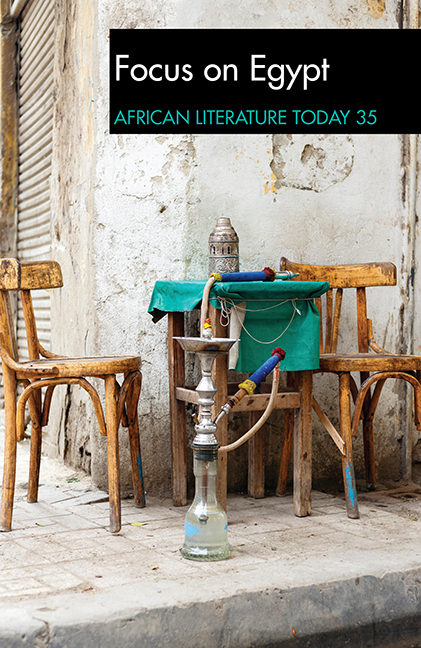Book contents
- Frontmatter
- Dedication
- Contents
- Notes on Contributors
- Foreword
- EDITORIAL ARTICLE
- ARTICLES
- FEATURED ARTICLES
- LITERARY SUPPLEMENT
- TRIBUTE
- REVIEWS
- Mohammad Rabie, Otared. Translated from Arabic By Robin Moger
- Yasser Abdel Hafez, The Book of Safety. Translated from Arabic to English by Robin Moger
- Sanya Osha, On A Sad Weather-Beaten Couch
- Adam Mayer, Naija Marxism: Revolutionary Thought in Nigeria
- NoViolet Bulawayo, We Need New Names
- Okey Ndibe, Never Look An American in the Eye: Flying Turtles, Colonial Ghosts, and the Making of a Nigerian American
- Reviews of Nigerian Poetry
Okey Ndibe, Never LookAn American in the Eye: Flying Turtles, Colonial Ghosts,and the Making of a Nigerian American
from REVIEWS
Published online by Cambridge University Press: 24 August 2019
- Frontmatter
- Dedication
- Contents
- Notes on Contributors
- Foreword
- EDITORIAL ARTICLE
- ARTICLES
- FEATURED ARTICLES
- LITERARY SUPPLEMENT
- TRIBUTE
- REVIEWS
- Mohammad Rabie, Otared. Translated from Arabic By Robin Moger
- Yasser Abdel Hafez, The Book of Safety. Translated from Arabic to English by Robin Moger
- Sanya Osha, On A Sad Weather-Beaten Couch
- Adam Mayer, Naija Marxism: Revolutionary Thought in Nigeria
- NoViolet Bulawayo, We Need New Names
- Okey Ndibe, Never Look An American in the Eye: Flying Turtles, Colonial Ghosts, and the Making of a Nigerian American
- Reviews of Nigerian Poetry
Summary
‘Never look anAmerican in the Eye’, warned Ochendu, Okey Ndibe's uncle athis farewell family gathering in Nigeria before the youngOkey sets off to the United States to edit a new magazineAfrican Commentary. Although the unclehad never travelled outside of Nigeria, Okey took the adviceto heart and assiduously avoided eye contact with anyAmericans he met until that fateful day while standingwaiting for a bus in Amherst, MA. He looked up straight intothe eyes of a police officer waiting in his cruiser. Thelight changed and the officer drove off around the corner.The next minute Ndibe felt a hand on his shoulder, ‘Sir, doyou mind stepping out to the back of the bus stop?’ (72).Only 13 days in the country and he was mistaken for a bankrobber! With no identification on him, the officer askedthat he put his hands over his head while he was frisked.What was frisking Ndibe wondered? And what must the othersat the bus stop think was happening to him? The officer thendrove him back to his residence where he produced hispassport and was cleared of any suspicion. In retrospect,the writer was able to recreate the terror he felt, theembarrassment, and the mental agony as he thought about whatthe police were like and could do in Nigeria under similarcircumstances,
What if the Amherst police officer drove me to anisolated spot in town and, with nobody to witness thedastardly act, simply ‘wasted’ me…I contemplated my nextmove. A part of me wanted to sprint away. I had been anotable track athlete in high school. I was confident ofoutrunning the police officer. But the sight of theofficer's gun froze me… (76-7)
Okey Ndibe'smemories of the early clashes in etiquette are equallyamusing and penetrating. An American woman invited him tolunch so they could continue their discussion on her desireto trace her Nigerian father whom she had never met.Assuming this to be a case of free lunch, it turns into anembarrassing lesson in going Dutch:
In an instant, my first meal with a ‘generous’ Americanturned into a moment of profound culturaldisorientation… To compound the problem, as a Nigerian,I didn't know what a ‘tip’ meant.
- Type
- Chapter
- Information
- ALT 35: Focus on EgyptAfrican Literature Today 35, pp. 308 - 312Publisher: Boydell & BrewerPrint publication year: 2017

